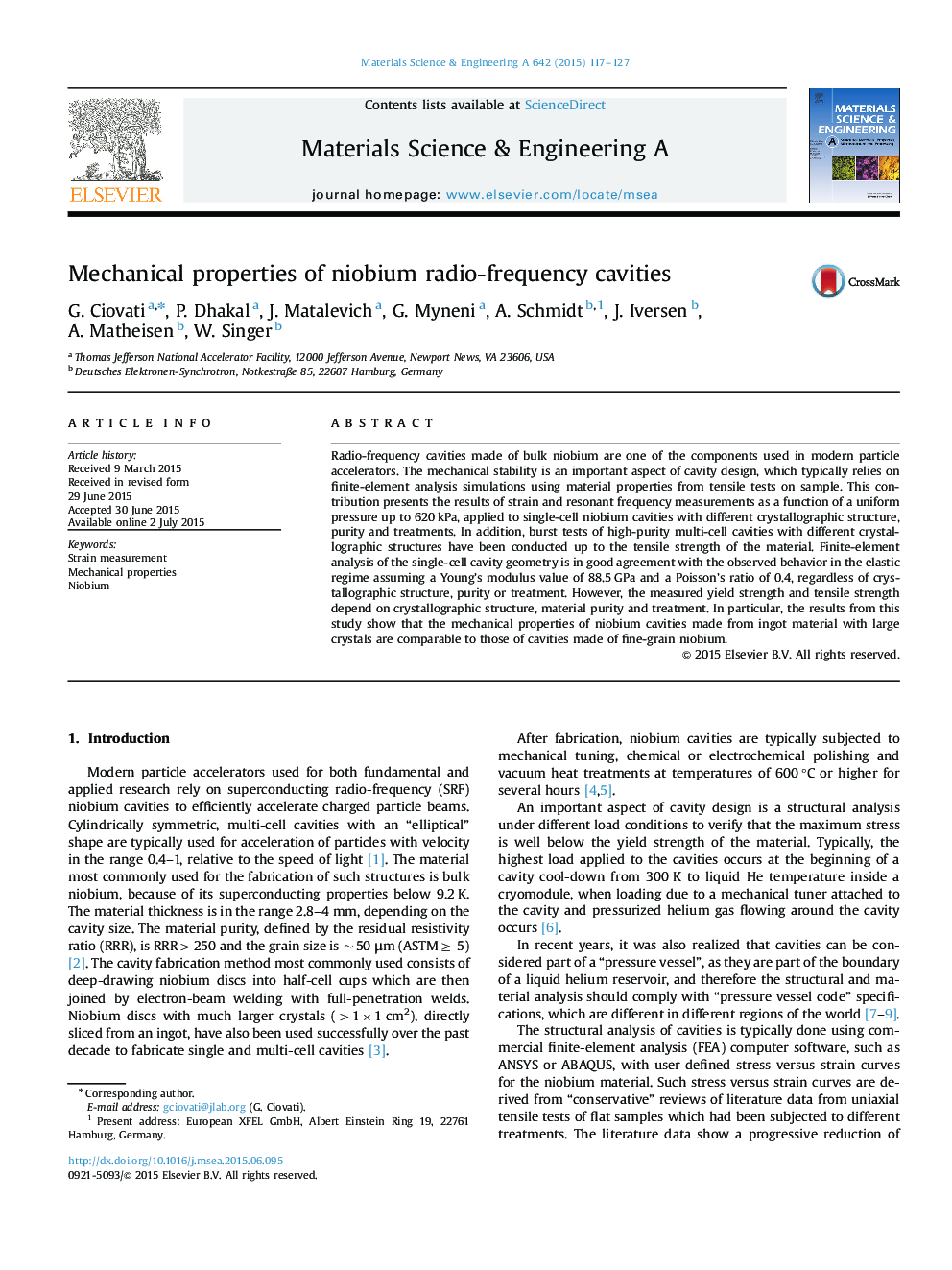| Article ID | Journal | Published Year | Pages | File Type |
|---|---|---|---|---|
| 7977205 | Materials Science and Engineering: A | 2015 | 11 Pages |
Abstract
Radio-frequency cavities made of bulk niobium are one of the components used in modern particle accelerators. The mechanical stability is an important aspect of cavity design, which typically relies on finite-element analysis simulations using material properties from tensile tests on sample. This contribution presents the results of strain and resonant frequency measurements as a function of a uniform pressure up to 620Â kPa, applied to single-cell niobium cavities with different crystallographic structure, purity and treatments. In addition, burst tests of high-purity multi-cell cavities with different crystallographic structures have been conducted up to the tensile strength of the material. Finite-element analysis of the single-cell cavity geometry is in good agreement with the observed behavior in the elastic regime assuming a Young's modulus value of 88.5Â GPa and a Poisson's ratio of 0.4, regardless of crystallographic structure, purity or treatment. However, the measured yield strength and tensile strength depend on crystallographic structure, material purity and treatment. In particular, the results from this study show that the mechanical properties of niobium cavities made from ingot material with large crystals are comparable to those of cavities made of fine-grain niobium.
Related Topics
Physical Sciences and Engineering
Materials Science
Materials Science (General)
Authors
G. Ciovati, P. Dhakal, J. Matalevich, G. Myneni, A. Schmidt, J. Iversen, A. Matheisen, W. Singer,
